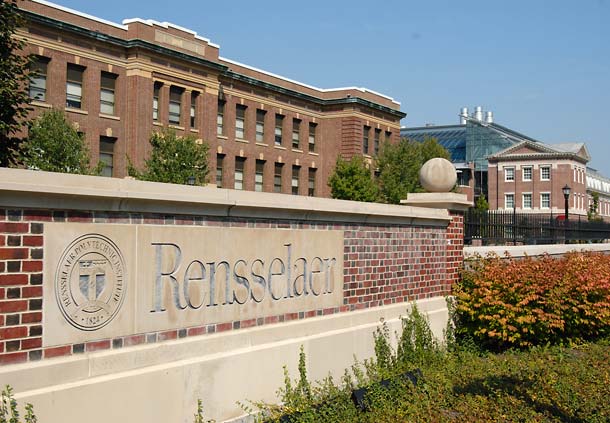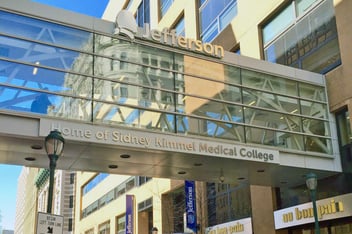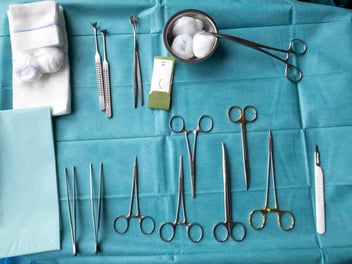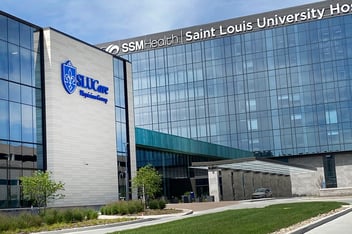Everything you need to know about Rensselaer Polytechnic Institute’s BS/MD Program

Overview of the Program
The Accelerated Physician-Scientist Program (PSP) at Rensselaer Polytechnic Institute (RPI) is an intensive, combined medical program with Albany Medical College (AMC) to prepare qualified candidates for the unique position of becoming a physician-scientist after a seven-year period of study. RPI itself is a small, private university located in Troy, NY that is nationally renowned for its engineering, and has recently been marked #42 among National Universities by the U.S. News & World Report. Students spend three years at RPI studying under a structured program curriculum to obtain a Bachelor of Science (BS) in Biology, which is the only major allowed in this program. PSP students are not required to obtain a minor, but popular minors include psychology and economics. While students do not have to remain on campus in the summers after freshmen year or sophomore year, it is mandatory to conduct research during the summer after junior year at Albany Medical College, with the research beginning during 2nd semester junior year at the latest. This research will continue into the summer after the first year of medical school, and students will have the opportunity to defend their thesis to obtain the MDDR, or the MD with a Distinction in Research. After completing the second year of medical school, students can also choose to obtain a PhD, and AMC offers free tuition for the last two years of medical school if students choose to take this option.
The acceleration of the program occurs because the Biology major under RPI requires very science-heavy courses— students are not required to take general requirements. However, this is not to say that electives in other subjects are not possible at all—RPI requires students to take upper-level courses in HASS, or Humanities, Arts, and Social Sciences, which offers students a chance to take courses beyond only science-based courses.
To continue onto AMC, students must maintain a 3.5 GPA in their science/math GPA and their overall GPA (classes such as psychology will be included in this GPA) every semester, not cumulative. Although this GPA requirement may seem tough, at the time of this writing, the MCAT is not required, which thus makes the PSP Program very unique even among other BS/MD programs.
Admission
The admission to this program is highly competitive, with two separate applications necessary. Among 750-800 people apply to the program every year, and around 100 applications are reviewed by RPI to be forwarded to AMC. About 50 people are chosen by AMC to be interviewed in either January, February, or March, and about 20-30 people receive the acceptance offer. From this, 8-15 people choose to matriculate into the program. The overall acceptance of the program is thus around 3%.
Residency Match
The residency positions from the graduating class of 2017 ranged in a variety of areas such as obstetrics-gynecology, internal medicine, family medicine, pediatrics, anesthesiology, neurology, emergency medicine, psychiatry, plastic surgery, pathology, and vascular surgery. These positions were accepted at UCSF, UCSD, UC Irvine, Yale, Temple University, Case Western, George Washington University, Penn State Hershey Medical Center, and University of Southern California.
Academic Structure of the Program:
Through the biology major, the academic structure of RPI’S PSP requires students to take a majority of core science classes, which provide a strong basis for medical school. However, AP classes are widely accepted for science and non-science classes, which thus allows PSP students to take other electives as desired. Students are required to take 1 semester of introductory biology, 1 semester of cell biology, 2 semesters of Calculus, 2 semesters of Chemistry, 2 semesters of Physics, 2 semesters of Organic Chemistry, 1 semester of genetics, 1 semester of molecular biology, 1 semester of biochemistry, 1 semester of human physiology, 1 semester of developmental biology, and 1 semester of introductory neurology. This essentially dictates that to be considered a full-time student at RPI, students must take 4 courses a semester for a total of 16 credits (most classes are 4 credits unless otherwise dictated). Beyond this, students often choose to take other science courses to buffer their math/science GPA such as evolution, multivariable calculus, or conducting research with the numerous faculty members on campus. Research at RPI tends to be focused on the molecular level, with more animal-based research studies occurring at AMC. In addition, during students’ junior year, the matriculation process to AMC officially begins with the Investigative Medicine I course, which occurs once a month at AMC. Students attend lectures given by distinguished medical college professors, and occasionally have quizzes related to this, culminating with an official medical school level neuroanatomy exam in the spring. This class also allows for students to become acquainted with students from the other 2 guaranteed medical programs that matriculate to AMC: Siena College’s BA/MD program and Union College’s BS/MS or MBA/MD program. As mentioned above, starting 2nd semester junior year, students are required to begin biomedical research at AMC, with students becoming a part-time student at RPI in order to do so.
PSP Involvement in Extracurricular Activities:
Extracurricularly, PSP students are involved heavily in school clubs (over 160 are available) and other activities that are not necessarily medically related. For example, I am involved in SASE, or Society of Asian Scientists and Engineers, Women’s Mentor Program as a peer mentor, and play badminton recreationally. A large variety of cultural clubs on campus are also popular, such as ISA, Indian Students Association, or CASA, Chinese American Student Association. Brandon Weller, a junior, plays HVZ, or Humans versus Zombies, on the weekend and, during the summer, does rock hunting and digs up dinosaur bones. Other PSP students join fraternities and sororities, such as Alpha Phi. There are many other events occurring on campus that are enjoyable to attend, such as weekly movies at UPAC, concerts held in EMPAC, or hockey games.
Troy, the surrounding city, is also an excellent place to relax and hang out with friends to check out books from the local library, enjoy an afternoon tea at the Whistling Kettle, or buy fresh fruits and vegetables grown locally at the Saturday morning Farmers’ Market. Prime shopping locations such as Crossgates Mall and Colonie Center are also nearby in the city of Albany, with movie theaters, popular eating places, and other large stores.
Motivation of PSP, Academic Advising, and Academic Requirements:
Students have to maintain a 3.5 GPA in math/science courses and all overall courses on a semester basis. That being said, there is no MCAT requirement, and no other formal pressure to participate in medical extra-curricular activities. This tough academic pressure is manageable, and PSP students are more than capable of obtaining a healthy balance between study and a social life to be fully prepared for medical school.
Most PSP students are able to maintain the 3.5 GPA comfortably, with many in the 3.8-3.9 range. If a student is not able to meet the GPA requirement in either math/science or overall, he or she is given a semester probation, with removal from the program occurring if a second offense were to occur. However, this is very rare.
The RPI PSP program is very strongly committed to academic integrity, as is a necessity for the medical profession. RPI thus will investigate thoroughly if any student is accused of wrongdoing. If students are removed from the program, it is likely due to academic and ethical infractions such as cheating on exams.
The academic advisor for the PSP program, Dr. Michael Hanna, is truly excellent at guiding students for pursuing undergraduate research, possible options for minors, science coursework such how best to use AP credit, and other matters. The upperclassmen for the PSP program are also extremely helpful as well—the program strongly encourages interactions among students from different years to obtain a balanced perspective and the best advice for how to best succeed.
Examining the Medical Student Life:
AMC’s atmosphere is supportive, innovative, and challenging. There is a hospital that is directly attached to the college, so students are exposed to clinical studies and patients from the very beginning. Students spend 4 years in medical school, with the first two years in more structured courses and the last two years in medical rotations. The last year is spent primarily applying for residency positions.
During the first year, according to first-year student Gurleen Kaur, there are different themes lasting from 4-6 weeks such as medical cell biology, genetics, and musculoskeletal systems. These are presented as lectures given by different professors along with clinical correlation conferences, and usually take place in the morning. The afternoon is designated for anatomy lab discussions or longitudinal theme classes such as health care & society, evidence-based health care, clinical skills, etc. All lectures of AMC are recorded, so students can review these lectures at home at their own pace if desired. Time outside of classes is usually spent studying in the library, going back to anatomy lab to study from cadavers, or self-studying from home.
Students are also presented with a variety of resources outside of the classroom such as interest group meetings during lunch designed to allow students to ask other medical professionals in different specialties about their field, and can choose from a wide range of service learning opportunities (an important, necessary part of the AMC curriculum) such as tobacco cessation counseling, tutoring high school students, and pairing with a cancer patient as part of patient navigators programs.
Students also have the opportunity to continue with their research, but most students choose to not do research during the school year and to do it in the following summers even past the required first summer of medical school.
Thoughts from Current Students:
Overall, students have a high satisfaction rate with the program. Brandon Ng, a sophomore in the program, enjoys the balance this particular program provides between research and coursework to understand the nature of real-world discoveries. The program also provides a good template of classes to take so students can rearrange their schedules if they choose to take certain classes earlier, and which ones they wish to use their AP credits for. He enjoys the collaborative atmosphere RPI provides, in that the upperclassmen are very supportive, with no competition present as may been seen in pre-med majors at other universities. Classes he found difficult were Physics I and II, which is a common concern shared by many students.
At the End of the Day: Why You Should Join PSP
Most of the PSP students picked the program for all the advantages listed above, with one of the prime selling points being the non-necessity to take the MCAT. RPI and AMC both offer many amazing opportunities to participate in cutting-edge research, and although the undergraduate curriculum is challenging, students are able to succeed academically and professionally. Because the campus is a small, private college, students become intimately familiar with their fellow classmates and faculty, such as knowing them well enough to ask for recommendation letters to apply for internships. The satisfaction rates of PSP students is high because of the valuable life experiences, knowledge, and lessons obtained. The seven-year route offers students great relief in being guaranteed a spot in medical school and having the freedom to pursue other interests and hobbies as desired. In the end, becoming a doctor is an extremely rewarding profession with this program offering the unique and distinguished opportunity to bridge the gap between medicine and science to create a new generation of truly innovative and intelligent physician-scientists.




